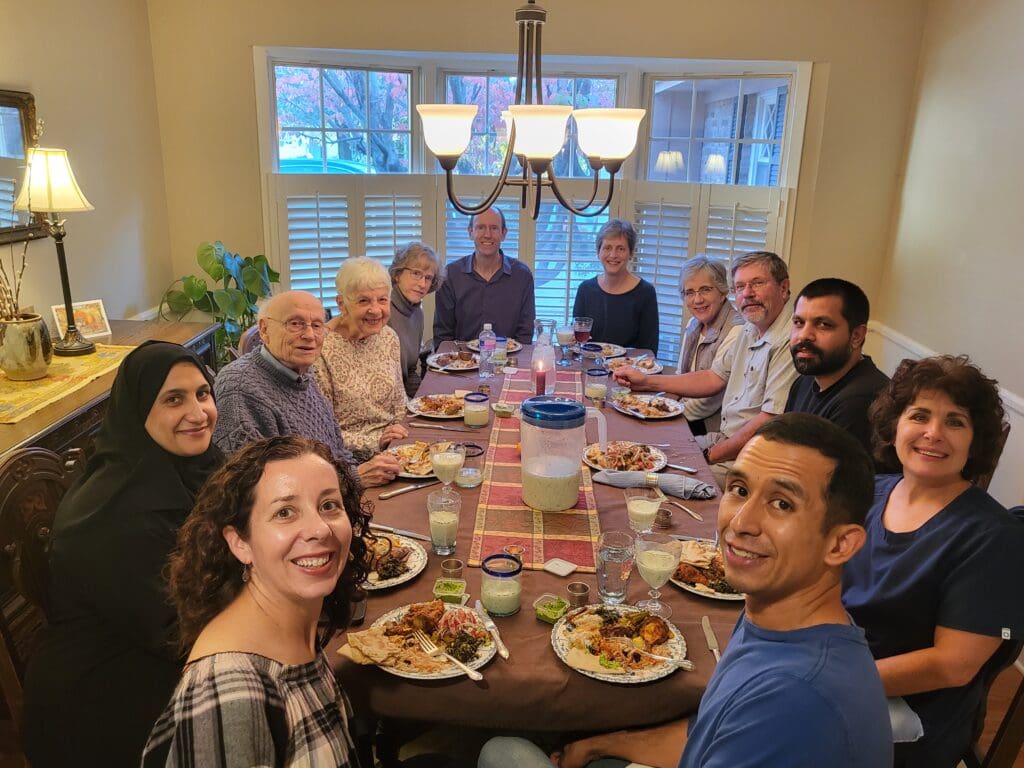
The Hashimi family enjoying a traditional Afghan meal they prepared for the C-U Welcome group to celebrate the close of their sponsorship
Five compassionate neighbors in Illinois joined forces through the Welcome Corps. Together, they helped an Afghan family escape persecution and start a new life in their community.
It’s easy to forget the struggles of people who are not in our periphery, especially those in foreign lands being persecuted by military regimes with limited freedom. It’s easy to forget that some live in fear. Helping others can be daunting because where do you start? How much work will be involved? Truly giving of yourself takes sacrifice, but to Helen Kaufmann, Genevieve Kirk, Hector Hernandez, Lana Friedman, and Becky Ford, that sacrifice is full of joy.
This group of churchgoing Samaritans helped an Afghan family under threat from the Taliban find a better life, and the beauty of it all is that everyone came away full of gratitude and grace.
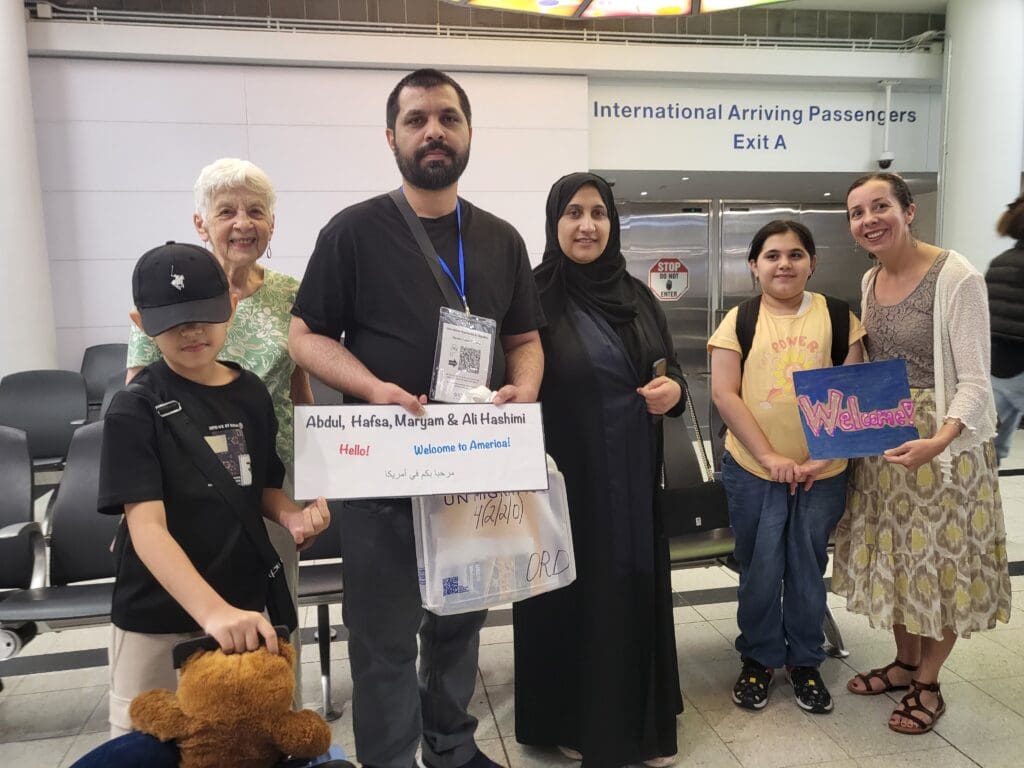
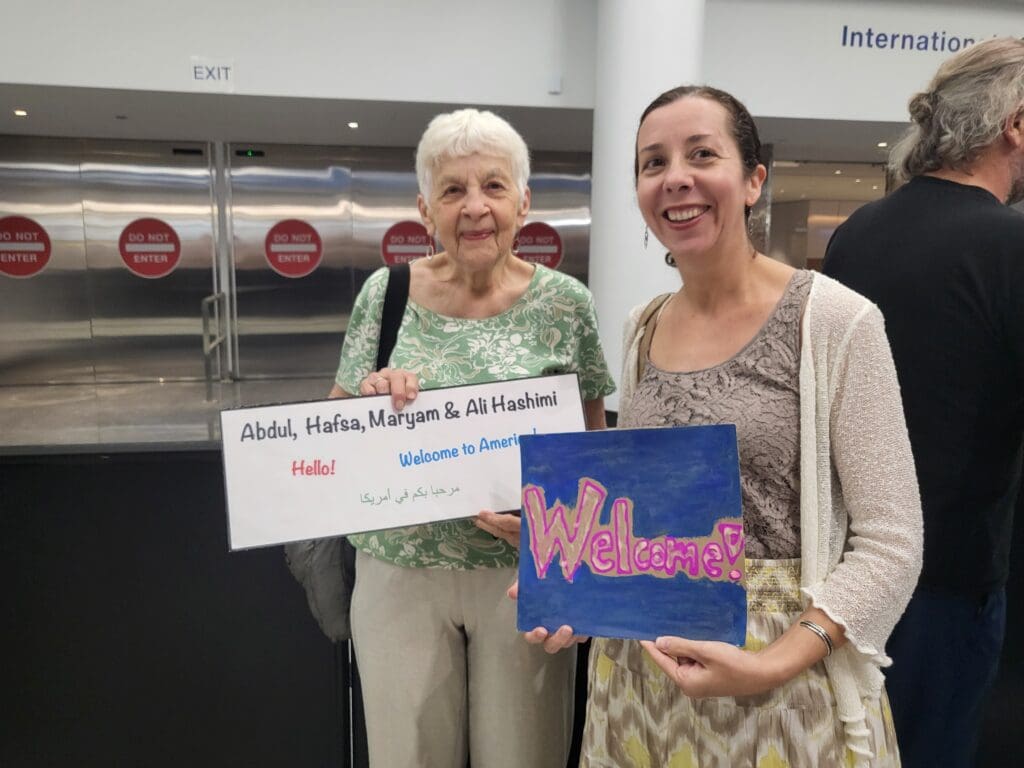
It all started with an email. The subject line read something like, “Wild Idea??” It was from Helen, 87, who Genevieve described as “spry” and “enthusiastic.” Exchange just a few words with her, and you’ll immediately understand why. It was Helen who planted the first seeds of what would eventually become the C-U Welcome group, formed in early 2023 in the hometown of the University of Illinois, south of Chicago.
“It’s very simple. I saw an article in the paper, and I thought, ‘gee that looks like a neat idea,” Helen said. The article was about Welcome Corps, a U.S. State Department program “for Americans in communities across the country to make a lasting impact by helping refugees build new lives in the United States.”
It works like this: At least five people form a group and help refugees start a new life. While there’s plenty to organize—fundraising, housing, jobs, schooling, and benefits—it’s the kind of work many of us have navigated in our own lives. Each person in the group has a specific role. Genevieve was the group coordinator and helped with fundraising by starting a GoFundMe. Helen assisted with benefits. Becky kept track of spending.
“It crossed political and neighborhood lines… people really wanted to support this family.”
Helen, Welcome Corps sponsor
Hector handled some of the transportation. Lana, a registered nurse, oversaw “all the medical stuff. We had to delegate and coordinate and communicate with many people who were interested in helping,” Genevieve said. During the initial stage of raising funds to sponsor the family, members of the group’s church donated to their efforts, Helen shared.
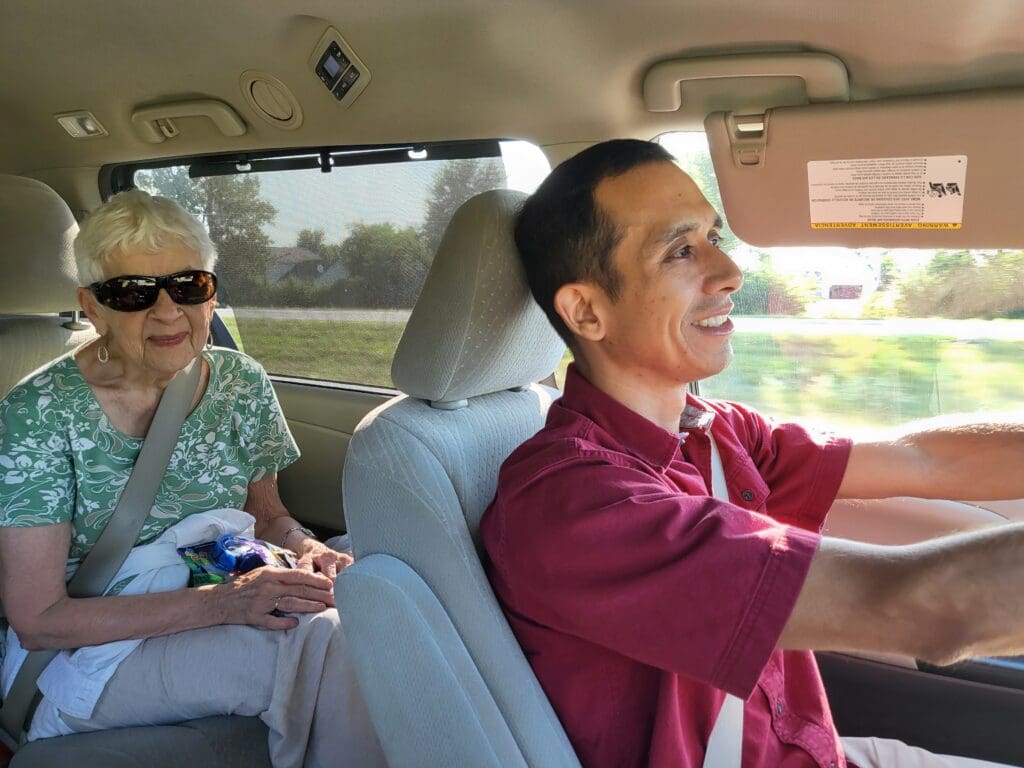
The assistance didn’t just come from the church, either. People gave time, food, furniture, clothes, advice and a healthy dose of compassion. “It crossed political and neighborhood lines,” she said. “People really wanted to support this family.”
After some initial misstarts and delayed expectations, the sponsor group matched with a family of four from Afghanistan: Father Abdul, Mother Hafsa, and children Maryam and Ali Hashimi, who are still in grade school. The journey for them from Afghanistan to Saudi Arabia to Illinois is one they won’t soon forget.
The C-U Welcome group had to patiently await their match with the Hashimi family—a process that’s common when sponsors apply to support refugees, as timelines often vary by case.
The story of the Hashimis begins in Afghanistan. Abdul Hashimi’s life was on track. He earned a bachelor’s from Kabul University in psychology in 2009. He met his wife and started a family.
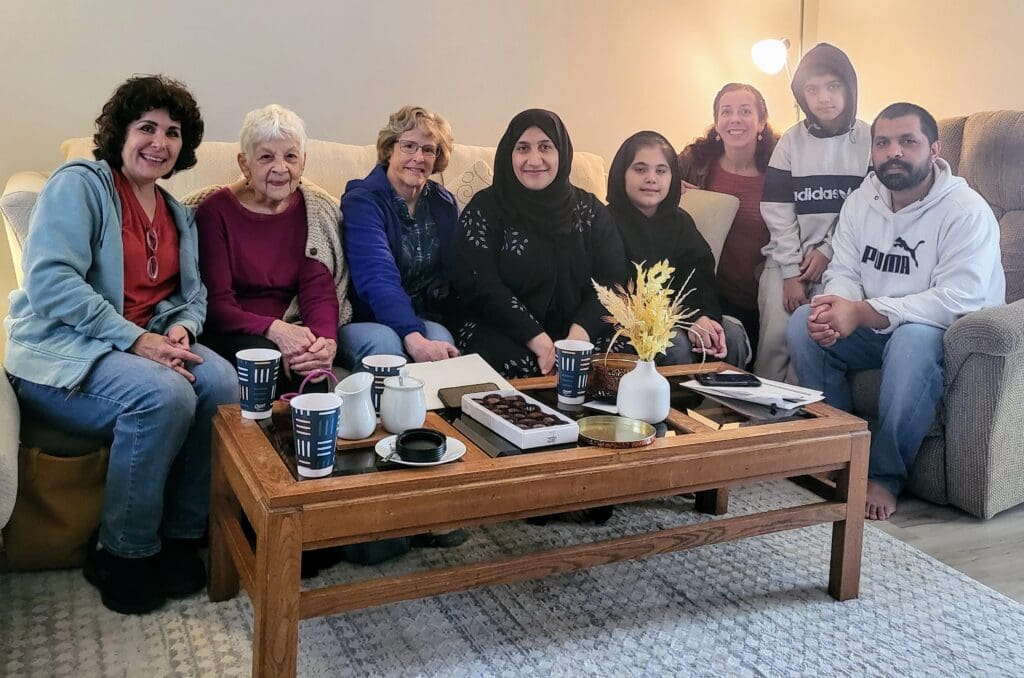
He also had an uncle who held a high position in the government. Unfortunately, it was the old government, and when the Taliban took over, things changed.
“He was a secret officer in our district, and no one was helping him,” Abdul said. “When I finished university they said, ‘we cannot protect you.’” So, he fled to Saudi Arabia. In 2014, he returned, and things were even worse.
“I was there for 19 days, and [the authorities] told me, ‘You cannot live here. They will eliminate you.’” With this type of existential threat, he was forced to flee for good. “For 10 years, I didn’t see my father and my mother and the rest of my family… I was really scared.”
Eventually, he settled in and got a job at the consulate, helping other Afghans get asylum. His immediate family in the country were not so lucky. His father is a teacher at Kabul University and can’t leave the country without a document that allows for travel. But those are not easy to get.
Abdul had asylum with the Saudi government, but he still lived in uncertainty, and he had a family to think about. What if Saudi Arabia changed its policy on refugees? Eventually he was approved for resettlement in the United States. The C-U Welcome Group was already ready to go.
For 90 days, the group helped the family settle in. When they arrived, Abdul thought he was going to live in Chicago proper. He was surprised when he pulled into Champaign, a much smaller municipality. Much quieter, too. But the family acclimated quickly.
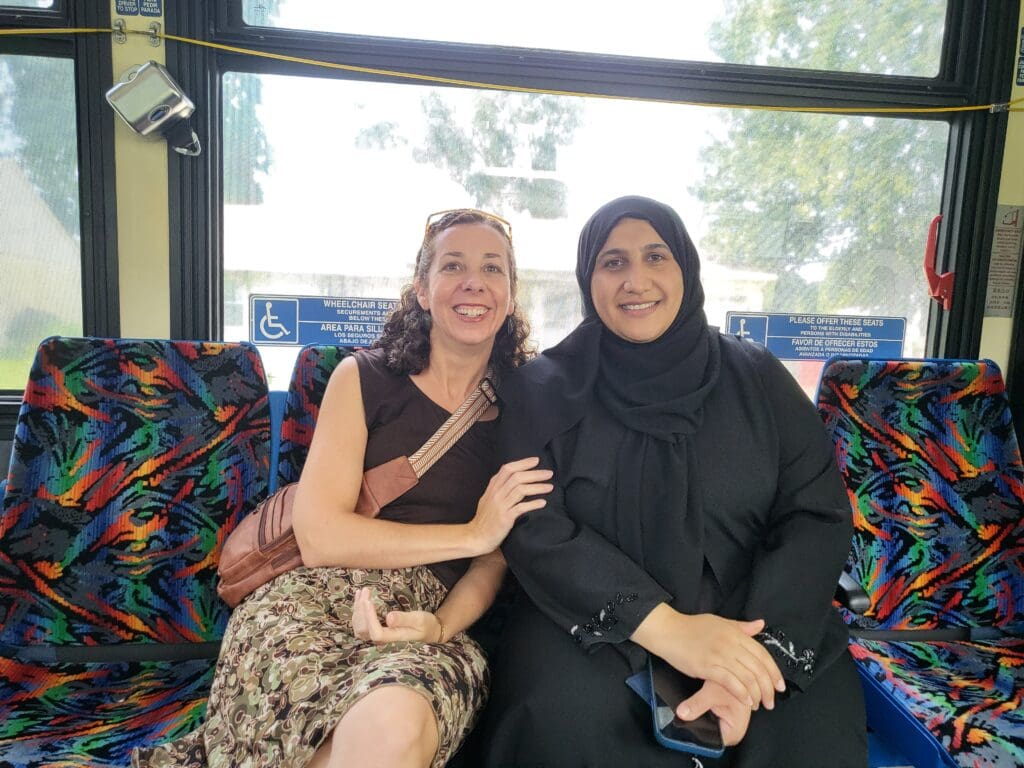

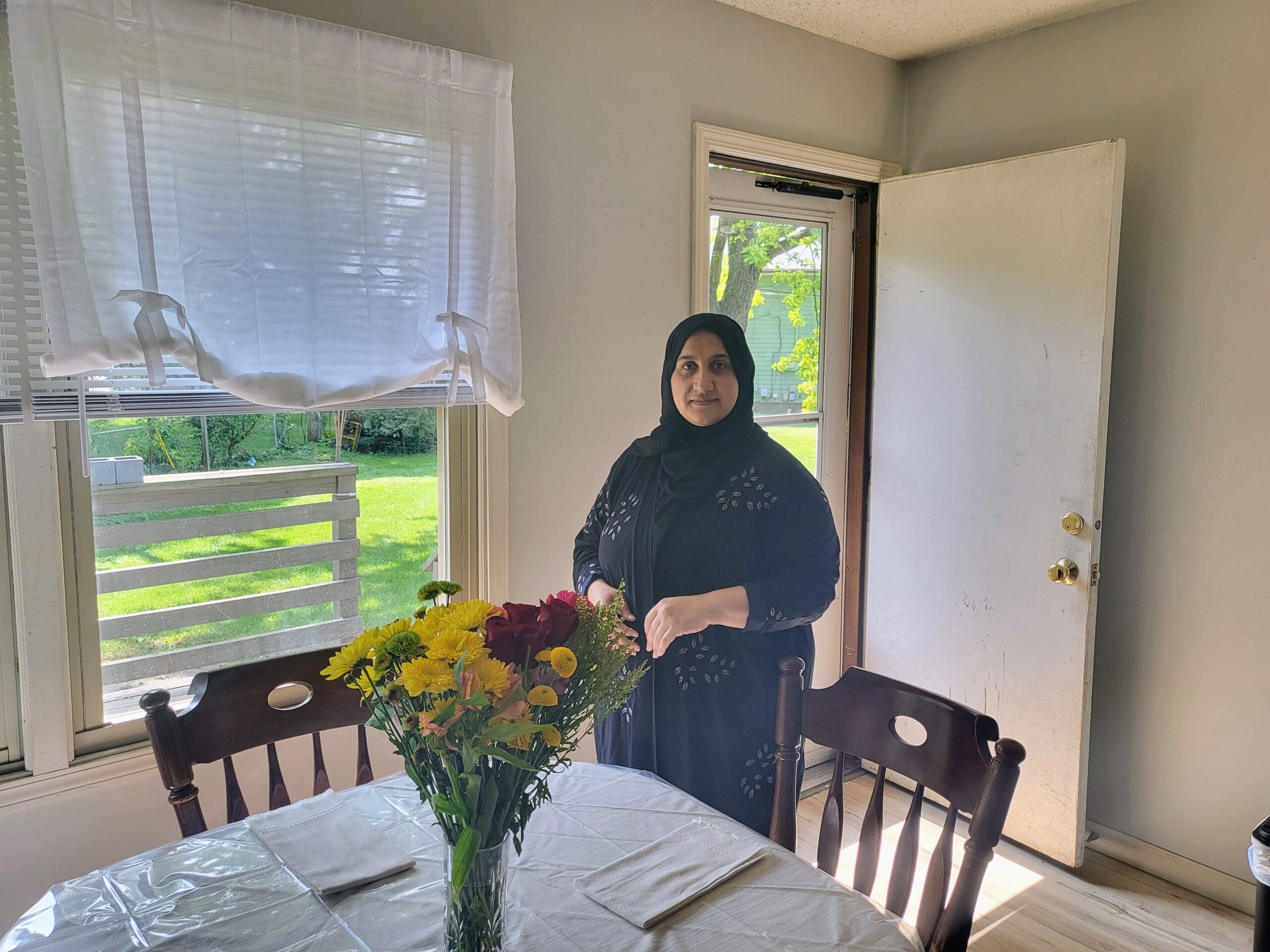
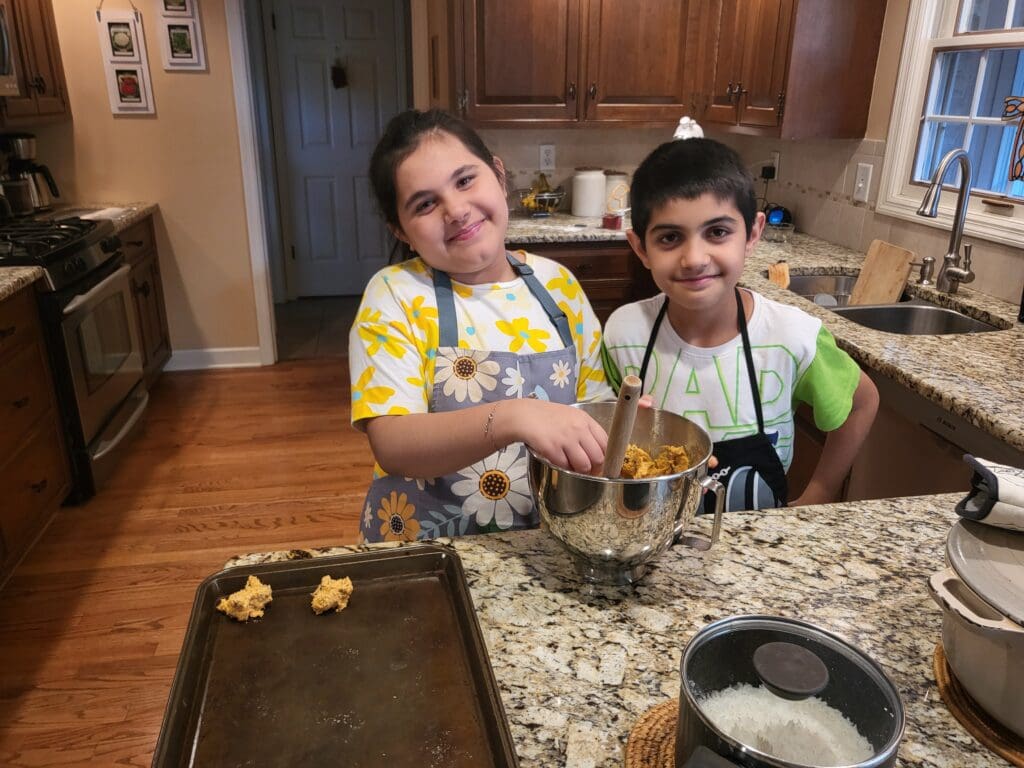
There was a lot to do, but fortunately, the group had the support of Integrated Refugee & Immigrant Services (IRIS) as their designated Private Sponsor Organization, guiding them through the delivery of core sponsorship services. Abdul and Hafsa needed to get Illinois state IDs; Abdul had to pass the driving test; the children needed vaccines and eye exams for school; they needed to apply for healthcare and find a doctor; they needed a checking account to pay their own bills, and they needed a car.
“I look at people and see needs and I ask, ‘is there some way to help’?”
Genevieve, Welcome Corps sponsor
That last part came about in an unexpected way. One of Helen’s friends unfortunately lost a husband and was preparing to move to Utah. She had a 2013 Honda CRV that she wanted to get rid of. She donated the vehicle to the Hashimi’s, which they were incredibly grateful to have.
Both Abdul and Hafsa are enrolled in English classes, and Abdul is working part time with FedEx until he can find something more permanent. Their house is fortunately near the children’s school. He felt overwhelmed at first but with everyone’s help he feels settled in.
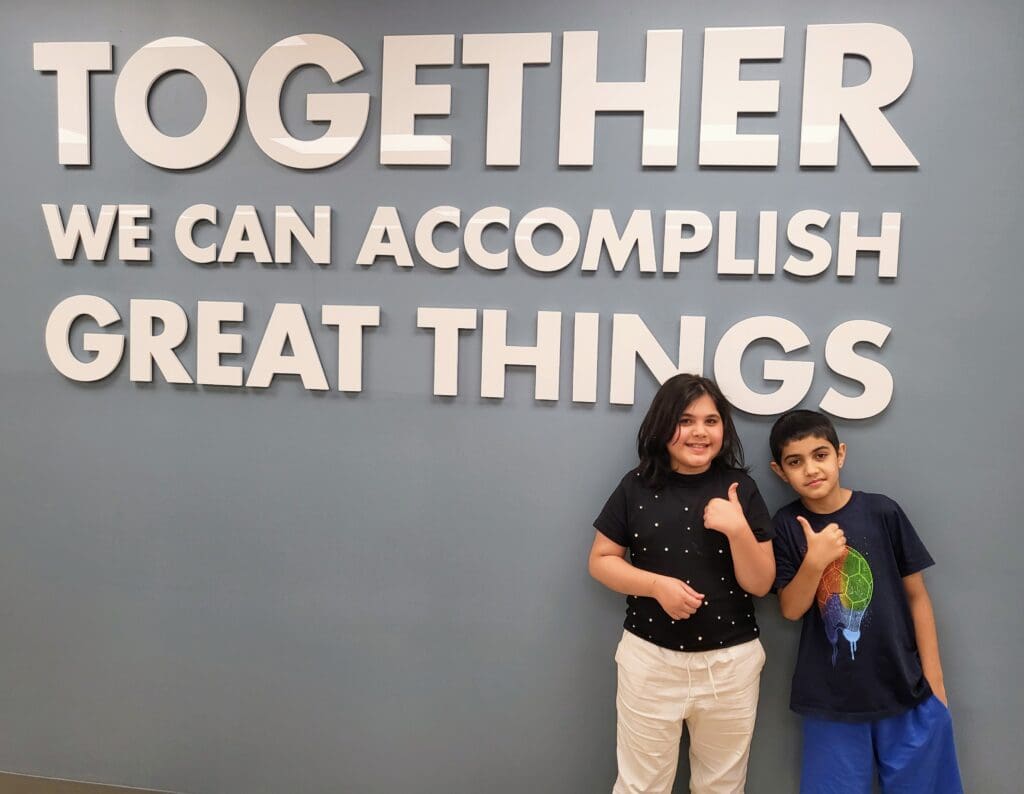
“Before I came, they told me five people would help me, but I didn’t know just how much,” he said. “We [are] really happy, and I don’t know how to express my gratitude.” As for Genevieve and Helen, helping is just part of what they do.
Genevieve feels that helping others is an “outpouring” of her faith. “I look at people and see needs and I ask, ‘is there some way to help?” With Thanksgiving around the corner, the spirit of community is alive and well in Champaign. Helen has invited the Hashimi family over for a traditional American Thanksgiving.
“Two of our adult children, and maybe a grandchild or two will be with us as well,” Helen said. “We are excited to help Hashimis learn a little more about American traditions.”
There’s even a halal turkey in the freezer.